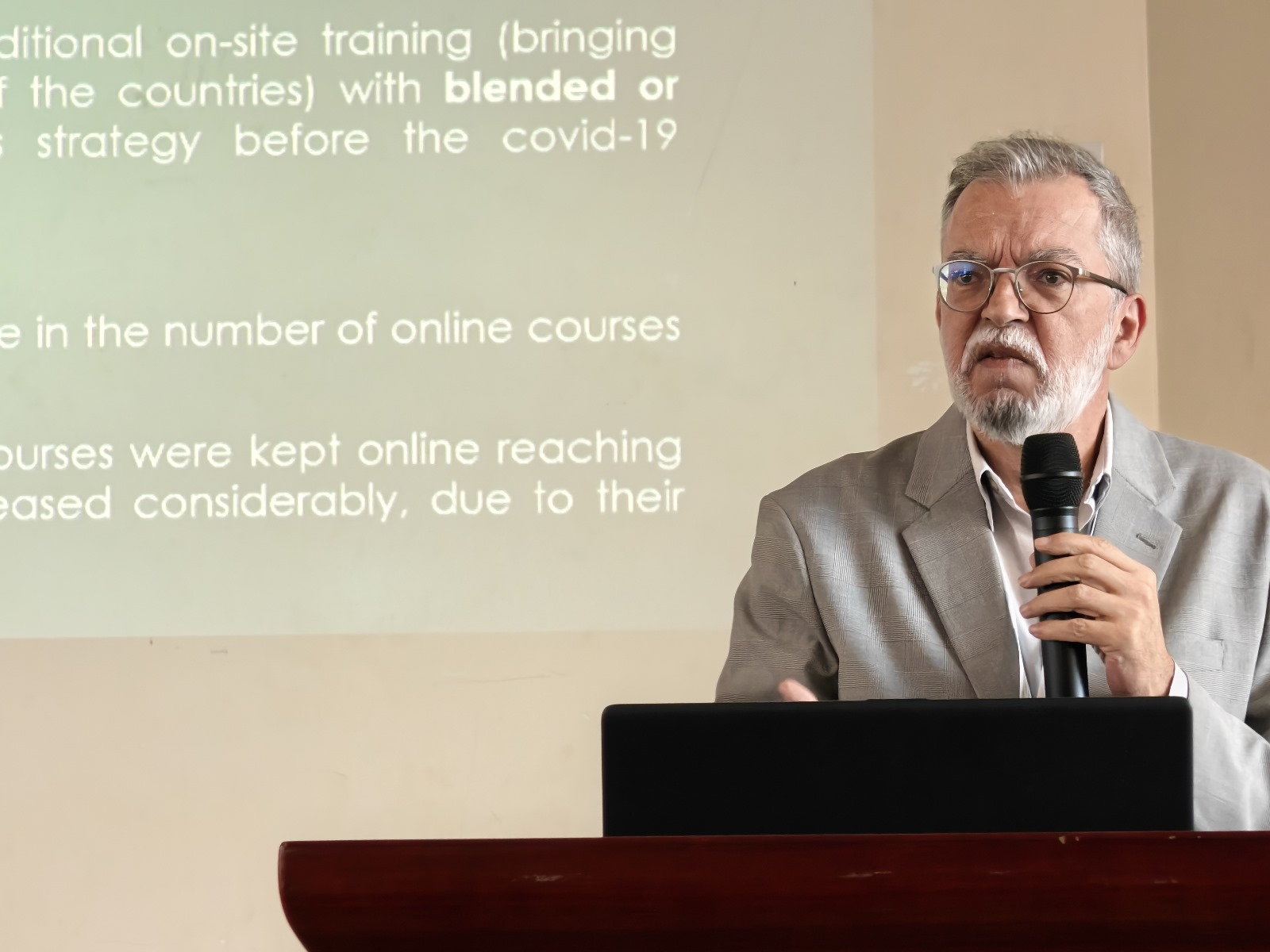Miguel Crespo e Ana Pinto Martinho participaram na Conferência Internacional “Media, Migration and E-Learning in Africa”, que decorreu entre 12 e 15 de agosto em Blantyre – Malawi. O diretor do Cenjor, Centro Protocolar de Formação Profissional de Jornalistas, e a investigadora do ISCTE – IUL, Instituto Universitário de Lisboa, ambos investigadores do Iberifier Plus, apresentaram um balanço da atividade formativa nos países de língua oficial portuguesa.
Na área da Literacia para os Média e Desinformação, entre 2022-2024, e tendo o Iberifier como promotor, foram formados mais de 150 jornalistas e estudantes na área da comunicação. O balanço revela que estes “workshops” foram frequentados por 72 jornalistas e estudantes de comunicação de Moçambique, 66 de Angola e 19 de Cabo Verde.
Foi lembrado que desde 1986 que o Cenjor se propõe desenvolver formação na área dos média e jornalismo em países como Angola, Moçambique, Cabo Verde. Num balanço mais global, incluindo outras áreas específicas do jornalismo – cursos promovidos pelo Cenjor – de edição de fotografia, jornalismo de rádio, introdução ao jornalismo, contam-se cerca de 2.270 formandos.
De acordo com Miguel Crespo e Ana Pinto Martinho, a pandemia Covid-19 contribuiu também para o aumento de cursos em formato digital e em modelo MOOCs (cursos online alertos e massivos). Estes cursos em Portugal foram suportados pela plataforma NAU. https://www.nau.edu.pt/pt/
Os investigadores sublinharam a importância destas formações específicas e o seu potencial alcance: em Angola existem 32 milhões de falantes portugueses, em Moçambique, 31 milhões, na Guiné Bissau 2 milhões, em Cabo Verde 5 milhões em São Tomé e Príncipe 2 milhões e na Guiné Equatorial 1,4 milhões. Este último faz parte dos países lusófonos desde 2010, mas não participa nas estratégias governamentais de cooperação.

